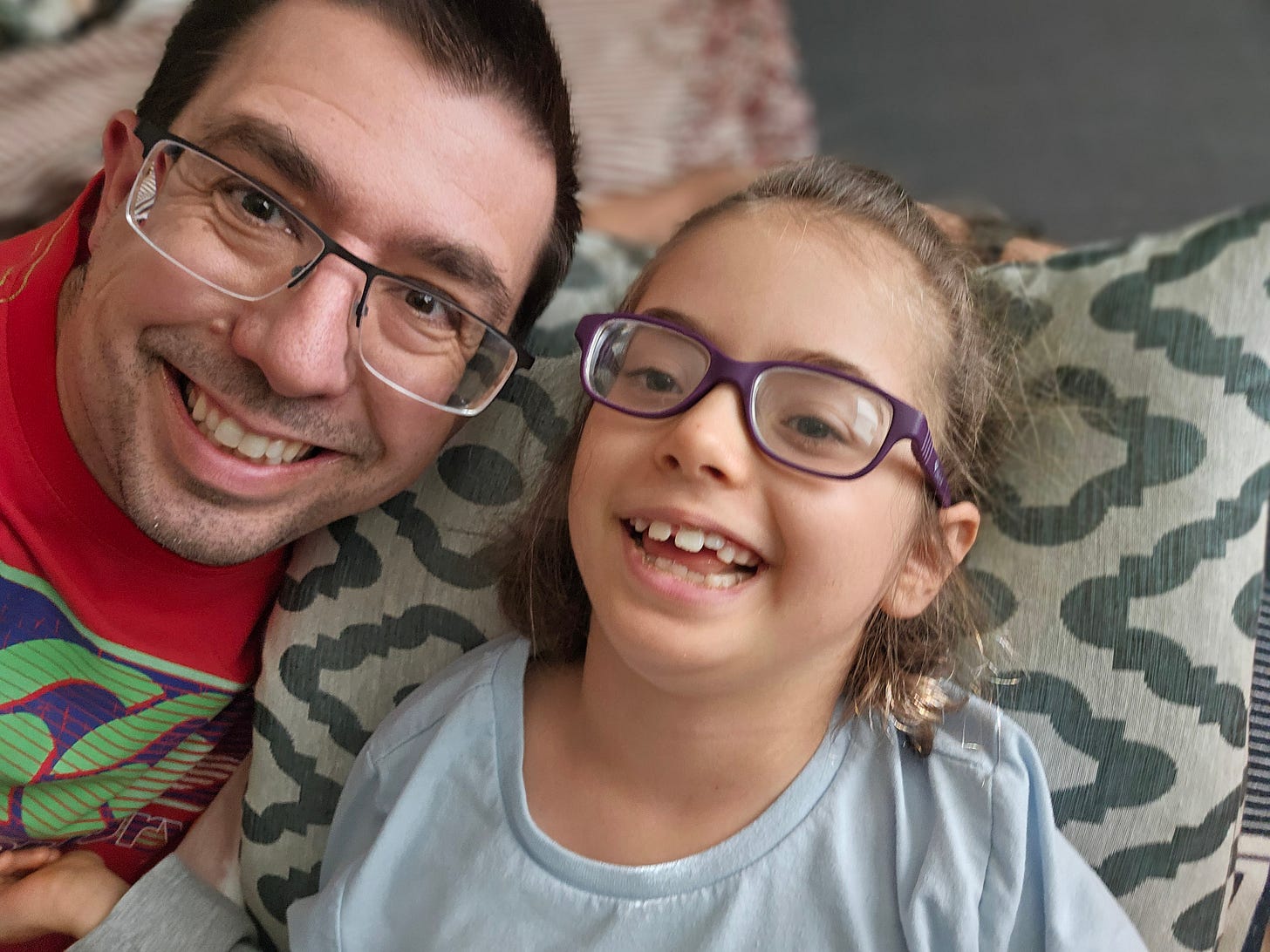Any time we read about Jesus healing someone’s daughter, I can’t help but think of Amelia. Please pray for her, the way the Canaanite woman does in today’s Gospel.
Reading 1
Gen 2:18-25
The LORD God said: "It is not good for the man to be alone. I will make a suitable partner for him."
So the LORD God formed out of the ground various wild animals and various birds of the air, and he brought them to the man to see what he would call them; whatever the man called each of them would be its name. The man gave names to all the cattle, all the birds of the air, and all the wild animals; but none proved to be the suitable partner for the man.
So the LORD God cast a deep sleep on the man, and while he was asleep, he took out one of his ribs and closed up its place with flesh. The LORD God then built up into a woman the rib that he had taken from the man. When he brought her to the man, the man said: "This one, at last, is bone of my bones and flesh of my flesh; this one shall be called 'woman,' for out of 'her man' this one has been taken."
That is why a man leaves his father and mother and clings to his wife, and the two of them become one flesh.
The man and his wife were both naked, yet they felt no shame.
We are social creatures, and God doesn’t want us to be alone. He created us to compliment each other, and through that complementarity and love, create new life. That’s why Adam and Eve had no shame being together—they’re doing nothing wrong.
As long as we’re reading the text correctly—
Responsorial Psalm
Ps 128:1-2, 3, 4-5
R. (see 1a) Blessed are those who fear the Lord.
Blessed are you who fear the LORD,
who walk in his ways!
For you shall eat the fruit of your handiwork;
blessed shall you be, and favored.
R. Blessed are those who fear the Lord.
Your wife shall be like a fruitful vine
in the recesses of your home;
Your children like olive plants
around your table.
R. Blessed are those who fear the Lord.
Behold, thus is the man blessed
who fears the LORD.
The LORD bless you from Zion:
may you see the prosperity of Jerusalem
all the days of your life.
R. Blessed are those who fear the Lord.
Following God’s teachings will eventually bear fruit in positive results. How long it takes that fruit to ripen is the only question.
Alleluia
Jas 1:21bc
R. Alleluia, alleluia.
Humbly welcome the word that has been planted in you
and is able to save your souls.
R. Alleluia, alleluia.
Listening to the Gospel and “believing” isn’t enough. We have to actually let it affect us, have faith, and act on that faith.
Gospel
Mk 7:24-30
Jesus went to the district of Tyre. He entered a house and wanted no one to know about it, but he could not escape notice. Soon a woman whose daughter had an unclean spirit heard about him. She came and fell at his feet. The woman was a Greek, a Syrophoenician by birth, and she begged him to drive the demon out of her daughter. He said to her, “Let the children be fed first. For it is not right to take the food of the children and throw it to the dogs.”
She replied and said to him, “Lord, even the dogs under the table eat the children’s scraps.”
Then he said to her, “For saying this, you may go. The demon has gone out of your daughter.” When the woman went home, she found the child lying in bed and the demon gone.
First century Jews did, indeed, call gentiles “dogs.” It was not a polite thing to say. But Jesus didn’t actually say “dog” here; the word is better translated as “puppy.” He’s sort of goofing around with the terminology used at the time. It’d be kinda like calling someone a “rascal.” Technically it’s an insult, but I mean, c’mon.
And don’t forget, He called Peter Satan at one point.1 So it’s not like Jesus wouldn’t use strong language to make a point.
God set the Jews aside to be a light for all nations, and that’s eventually where Jesus sprang up, a shoot from Jesse’s tree. Jesus focused His ministry there. But when He sees especially strong faith outside of Judaism, like with the Centurion’s Servant,2 Jesus doesn’t hold back his blessings.
Like them, this woman shows humility. Humility isn’t the same as shame; the former means recognizing our place in the word, whereas the latter means disparaging ourselves for that place. The Syrophoenician begs for Jesus’ help because she knows He has the power to cast out demons, when no one else does.
Later, after the Resurrection, Jesus grants this power to the Apostles and their successors, and sends them out into the whole world. The woman doesn’t know that yet, but she still has faith in Jesus, even while her daughter is possessed by a demon.






